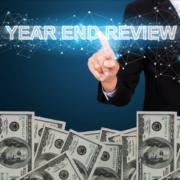AMERICAN ABROAD: CAN’T BUY MUTUAL FUND? LOOK AT MANAGED ETF PORTFOLIOS
As the noose tightens for American citizens living abroad trying to invest, the latest causality appears to be mutual funds. Many American olim now living in Israel are no longer able to purchase many mutual funds because of their foreign domicile. Many big name mutual fund families have set up a blanket rule that if you don’t have a U.S. address, you can’t buy their funds. This applies even if you are a U.S. citizen. For many investors who like the fact that mutual funds provide an actively managed investment the question now is what kind of similar investment is out there?
It’s Raining ETFs
The explosion of Exchange Traded Funds (ETFs) has been well documented. Investors, armed with substantial data that says that the overwhelming majority of fund managers underperform their market benchmarks, have turned to ETFs as a way to gain stock market exposure in a cheaper and potentially more profitable way. What this means for lovers of mutual funds is that the inability to purchase many of them may actually be a blessing in disguise!
Over the past 7-8 years, there has been an explosion of new ETFs, with hundreds of new products hitting the market, leaving investors scratching their heads trying to figure out which ETF is a good fit for their portfolio. It’s like you need a Ph.d to make heads or tails of all these products.
There are now ‘inverse ETF’s’ which are a way to make money when the market drops. Leveraged ETF’s have become hugely popular, especially among day traders, as they enable investors to get up to 3 times the leverage on a particular index. There are also a slew of ETFs in registration that will track particular hedge fund strategies, and even actively managed ETFs.
So while all these products exist, what are investors supposed to do? On the one hand they understand the benefits of using ETFs. On the other hand, how on earth is someone going to sort through all the various ETFs available and be able to use the correct ones for his portfolio?
Managed ETF Accounts
It’s this quandary that has been the catalyst for managed ETF accounts. Investors are turning to professional money managers, to manage their portfolios using ETFs. “Taking into account discretionary and non-discretionary assets and model portfolios, investment researcher Morningstar estimates that the total ETF managed portfolio space accounts for $40 billion to $100 billion in assets”, writes Andrew Gogerty, ETF Managed Portfolios Strategist, at Morningstar.com. “I think it’s safe to say that managed ETF accounts are the fastest growing segment of the money management business.”
One of the essential reasons that this type op managed portfolio has taken off is due to newfound accessibility to smaller investors. Whereas a few years ago a minimum investment would have been between $250-500,000, now you can access a manager for $50,000.
Discretion
It’s important to note that when speaking about managed accounts you are talking about giving the portfolio manager discretion over trading. You pick the asset allocation model most in line with trying to achieve your goals, and the manager will buy and sell accordingly, without seeking your approval.
All-Inclusive Wrap Fee
Managed accounts charge an annual management fee which is based on the amount of money under management. Generally, all trading costs of the portfolio manager are included in this fee. This puts the client and the manager on the same side of the table, and eliminates any conflicts of interest that a manager may have from selling products and receiving commissions for them. As the value of the account goes up, the manager makes more money; conversely, if the value drops the manager makes less.
Speak with Your Adviser
If you seek a substitute for mutual funds or see the value in a managed ETF approach, speak with your investment adviser to investigate what type of managed ETF account is right for you. Your adviser needs to understand your short- and long-term financial goals and then can recommend the correct type of managed account that will provide you with an effective solution.
The information contained in this article reflects the opinion of the author and not necessarily the opinion of Portfolio Resources Group, Inc. or its affiliates.
Aaron Katsman is author of the book Retirement GPS: How to Navigate Your Way to A Secure Financial Future with Global Investing (McGraw-Hill), and is a licensed financial professional both in the United States and Israel, and helps people who open investment accounts in the United States. Securities are offered through Portfolio Resources Group, Inc. (www.prginc.net). Member FINRA, SIPC, MSRB, SIFMA. For more information, visit www.aaronkatsman.com or email aaron@lighthousecapital.co.il






